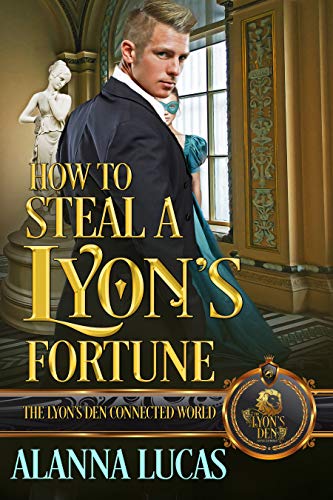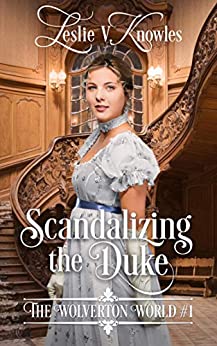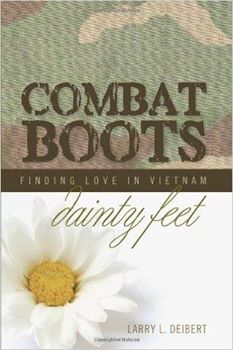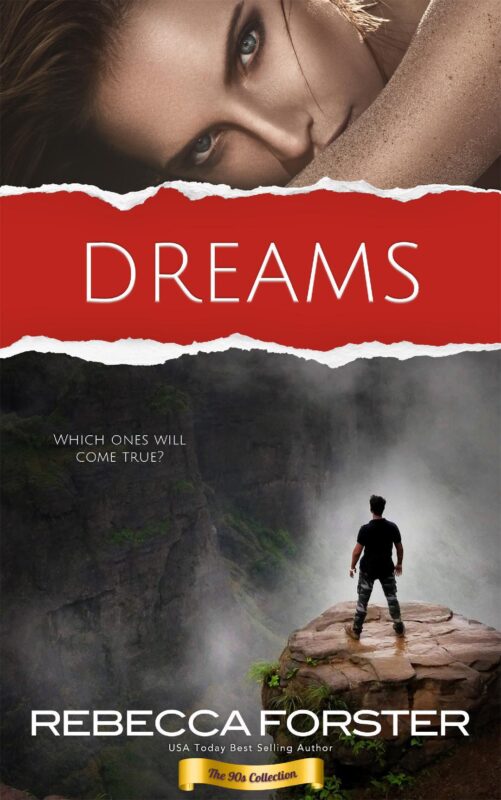The Ultimate Betrayal
August 16, 2020 by A Slice of Orange in category Spotlight tagged as Best Selling author, Guest posts, Kat Martin, new release, romantic suspense
Excerpt
by
Kat Martin
“Who hired you and Digger to kill Jessie Kegan?”
Petrov shook his head. “We didn’t have to kill her. We just had to convince her to quit sticking her nose into other people’s business.”
“And if you couldn’t convince her?”
Petrov shrugged his thick shoulders. “Then we’d have to do something that would.” He was built like a bull, and with that pale, scraggly beard, he was ugly.
“What? Like make her dead?” Bran pressed.
Petrov didn’t answer, just gave another shrug as if killing her was no big deal. Jessie shivered. She gasped when Bran drew back his fist and punched Petrov hard in the face, sending a spray of blood into the air and his body flying backward into the dirt.
“Bran, stop!” Jessie grabbed his bicep, which was bunched hard as steel, ready to deliver another brutal blow.
He shook his head, fighting for control. “He’s lucky I don’t kill him.” Instead, he jerked Petrov upright. “I need a name. Who hired you?
”
Petrov spit out a wad of blood. “Weaver. That’s his name. Just Weaver.”
“How do I find him?”
More blood trickled from Petrov’s nose. The way it was swelling, by tomorrow, both eyes would be black.
“I don’t know. He phones us on a burner, tells us what he needs, we call him back after the job’s done. Weaver tells us where to pick up our money. That’s the way it works.”
Bran swore foully. “What’s going to happen when Weaver finds out you didn’t finish the job?”
Petrov grimaced. “He ain’t gonna like it, that’s for sure.”
“Then I’d strongly suggest the first chance you get, you and your buddy leave town. I’ve got friends on the base. I’ll be texting them your photos. You don’t leave, I’ll know and you’ll be dealing with me instead of your buddy, Weaver. You won’t have a second chance to walk away.”
Petrov stared up at him. Jessie knew Bran was talking about soldiers in the 10th Special Forces stationed at Fort Carson, where he had friends.
“You understand what I’m saying?”
Petrov swallowed and nodded.
Bran turned to Jessie. “Time to go.”
“What about them? We can’t just leave them out here. They could die of exposure.”
“We’ll call the sheriff once we’re on the road.”
“I thought you were letting us go,” Petrov complained.
“You’re lucky your still alive.” Bran closed Jessie’s car door, rounded the hood, and slid in behind the wheel.
“Maybe we should call the MPs instead of the sheriff,” she suggested as the engine roared to life. “Since it involves a CID investigation.”
Bran shook his head. “These guys aren’t active duty, plus we don’t know who we can trust on the base.”
Unfortunately, that was true. Her dad had been murdered on the base. The military was somehow involved.
As soon as the SUV reached the highway, Bran called 9-1-1 and anonymously reported that two men had assaulted him and were now tied up in an empty field. He gave the location using GPS coordinates.
“Sheriff will be there in ten,” he said, ending the call. “We need to be long gone by then.” He punched the gas and the Expedition picked up speed, heading back to Colorado Springs, forty miles away, and their motel.
“What will the sheriff do to them?” Jessie asked.
“For starters, they’re probably driving with a stolen license plate. There’s also a good chance there’ll be warrants out for them. Guys like that…could be anything from a speeding ticket to a felony. Might get them locked up for a while.”
There were few cars on the back road Bran was driving toward town. The wind had picked up, blowing dust and dry leaves into the air. The night was dead black, no moon no stars. Jessie shivered, though it was warm in the SUV.
She thought of the men who’d come after them. “Once they’re released, do you think they’ll actually leave town?”
“I’d say chances are better than good. Men like that go after the easy money.” He cast her glance that held a trace of arrogance. “Turned out getting to you wasn’t as easy as they thought.”
She almost smiled. No, not nearly as easy with Bran Garrett acting as her bodyguard.
“I’ll text those photos to a couple of SF guys I know, have them spread the word to their buddies, keep a lookout, give me a heads-up if anyone spots them.”
She nodded. At least they might get some kind of warning if the two men stayed in the area.
Silence began to stretch between them. Neither of them spoke until town drew near and Bran’s gaze slid back to her.
“You okay?”
Was she okay? Men had been hired to stop her–one way or another–from finding out what had happened to the stolen munitions and clearing her father’s name. Since she had no intention of quitting, no, she wasn’t okay. But she didn’t say that.
“I will be. Once we clear my father’s name.”
“Be smarter to quit before things get worse.”
“You think they will?”
“Good chance they will.”
She fixed him with a stare. “You sticking?”
His mouth faintly curved. “If you are.”
As Jessie settled back in the seat, she found herself smiling. “Glad that’s settled.”
Bran just shook his head. “Well, you sure as hell aren’t boring.” He flashed one of his devastating grins. “Can’t remember when I’ve had a better time with a lady.”
Jessie scoffed. “Not counting sex,” she said dryly.
His look turned scorching the instant before he glanced away. “Yeah,” he said. “Not counting sex.”
Jessie’s whole body went warm, and in that moment she made a decision.
She decided she was going to seduce him.

Other Books by Kat Martin

Bestselling author Kat Martin is a graduate of the University of California at Santa Barbara where she majored in Anthropology and also studied History. Currently residing with her Western-author husband, L. J. Martin, in Missoula, Montana, Kat has written sixty eight Historical and Contemporary Romantic Suspense novels. More than sixteen million copies of her books are in print and she has been published in twenty foreign countries. Her last novel, INTO THE FIRESTORM, took the #7 spot on the New York Times Bestseller list. This will be the 15th novel in a row to be included on that prestigious list. Kat is currently at work on her next Romantic Suspense.
Write What You Know? Yes & No
August 15, 2020 by Rebecca Forster in category Writing Recently someone posed this question: is ‘write what you know’ still the best advice?
Recently someone posed this question: is ‘write what you know’ still the best advice?
My answer is yes and no.
YES! Your life is full of emotions: joy, heartbreak, success, and failure. Just by living you have built a warehouse of emotional resources that you will gift to your characters. Even if you were a Disney princess you would have had to deal with the terror of wicked witches, the joy of true love, the hardship of living with five messy dwarfs or two evil stepsisters. That means you, as a writer, can draw on your emotional experience to give our characters depth and realism that will stay with them long after they close our books.
NO! Don’t limit your stories to what you know. If you’re anything like me daily life is pretty normal —dare I say boring? A writer’s job is to take something we recognize and turn it into something we don’t. A chance meeting becomes an epic romance, walking the dog and seeing a shooting star becomes a Sci Fi novel. Your imaginations should not be limited by the familiar. I write legal and police thrillers. I am not a cop or a lawyer, but I am is curious. I have a sincere fascination with the world of law enforcement. In order to write effectively about something I don’t know I research, I take classes, I talk to people in the profession. I will never be a cop or a lawyer, but I can write about their challenges because I take the time to learn about them. My love of the profession, translates into a love of the genre in which I write.
Marry what you do know with what you don’t, and you will create an exciting, genuine work of fiction that will leave your readers wanting more.
Featuring Dianna Sinovic, August Author of the Month
August 14, 2020 by Dianna Sinovic in category Featured Author of the Month tagged as Dianna Sinovic, Featured Author of the Month, Quill and Moss, Short Stories
Author of the Month: Dianna Sinovic

Dianna is a contributing author in the recent Bethlehem Writers Group anthology, Untethered, Sweet, Funny & Strange Tales of the Paranormal. A man buys a painting of a jungle scene that is so realistic it seems to change in “Point of View.” She has also contributed stories for the Bethlehem Writers Roundtable ezine, including “In the Delivery.”
Born and raised in the Midwest, Dianna has also lived in three other quadrants of the U.S. She writes short stories and poetry, and is working on a full-length novel about a young woman in search of her long-lost brother.
Dianna also has a regular column, Quill and Moss, here on A Slice of Orange.
Other books by Dianna Sinovic

Born and raised in the Midwest, Dianna Sinovic has also lived in three other quadrants of the U.S. She writes short stories and poetry, and is working on a full-length novel about a young woman in search of her long-lost brother.
Spirit Trail by Christopher D. Ochs
August 13, 2020 by Bethlehem Writers Group in category From a Cabin in the Woods by Members of Bethlehem Writers Group tagged as Christopher D. Ochs, fiction, Short Stories

August’s from A Cabin in the Woods features a short short by Christopher D. Ochs. Christopher’s foray into writing began with his epic fantasy Pindlebryth of Lenland. Several of his short stories have been published in the Greater Lehigh Valley Writers Group and Bethlehem Writers Group anthologies and websites. His latest work, If I Can’t Sleep, You Can’t Sleep , is a collection of bedtime reading to inflict on naughty children.
His current projects include: a YA urban-fantasy/horror novel My Friend Jackson; a short story in Firebringer Press’ last anthology in their Middle of Eternity series; and the next installment of the Pindlebryth saga.
Christopher says, “The following is semi-autobiographical. I leave it to the reader to determine how much of this tale is true.”
SPIRIT TRAIL
I don’t particularly believe in ghosts, though there have been several curious incidents in this house over my lifetime.
Nothing frightening, mind you, nor anything remotely harmful. If anything, the unseen forces-that-be have been nothing but helpful.
The first instance I clearly recall occurred during my junior-high school years. I was raised the classic latchkey kid. Both parents held down two jobs, so yours truly was responsible for closing up the house before heading to classes.
That spring day, I woke up looking out the open window above my headboard at a sky filled with roiling clouds still deciding whether or not they wanted to rain. By the time I finished dressing for school, Mom and Dad had already slogged off to their crack-of-dawn work shifts.
Dashing out of the house, I was halfway through my shortcut across our neighbor’s corn fields, when I heard the rumble of thunder. On its heels came the realization I couldn’t remember if I had closed my bedroom window.
With a grunt of exasperation, I made a U-turn back for home. Sure enough, my second-floor window was wide open. Ready, willing and able to let the impending squall soak my pillow.
I had sprinted halfway up the stairs when I heard a bang, loud as a gunshot, reverberate from my bedroom. Once I summoned the courage to enter my room, my jaw dropped in bewilderment. The old warped double-hung window–which would normally require my full weight to close–was firmly shut, fierce raindrops pelting its glass panes.
Then there was the time years later, when I returned home long after sunset, tired from work and a laundry list of errands. Both my arms were crammed with fully-loaded grocery bags as I fumbled with the lock and shouldered the door open. I wasn’t two steps into the dark and deserted house when all the kitchen lights snapped on.
With the odd sensation of being watched pressing in on me, I proffered a nervous “Thank you very much?”
The lights flickered in response. I could almost hear the house chuckle.
These humorous but unsettling episodes continued, though with less frequency as the years rolled by. Eventually they stopped entirely–or perhaps, they merely escaped my notice–as responsibilities and drudgeries crowded most everything else out of my life. Adding events like the passing of my parents, the transformation of neighbors’ cornfields to townhouses, and other milestones kept my attention firmly planted in the world of the mundane.
That is, until I discovered an old family heirloom–a county map, penned soon after my ancestors and hundreds of other immigrants had formally established my hometown and surrounding boroughs. The yellowed parchment document, complete with an antiquated county seal, depicted Iroquois trails that were already centuries old by the time the colonial-era deeds had been drafted.
The paths snaked along the ridges of the local offshoots of the Appalachian mountain chain, including a few thoroughfares that wended their way through the new and burgeoning county. The map’s legend declared that the indigenous peoples–the Lenni Lenape, Delaware and other members of the Iroquois nation–had “rights in perpetuity to sole and unhindered access to the mineral fields atop and in vicinity of Jasper Mountain, for the purpose of fashioning arrowheads and other baubles likewise; to deliver said freight without impediment, toll or tax along the footpaths documented herein.”
I was overcome by an unsettling sensation that the house was looking over my shoulder, when I learned the map indicated the footpath connecting Jasper Mountain to the Appalachian Trail formed my estate’s western property line.
Barely a week had passed since finding the map, before I found unmistakable signs my unseen helpers had resumed their work. On the other hand, maybe I was simply paying closer attention.
Like the instance when a limb from the locust tree my father had planted close to the house had fallen. Carpenter ants had eaten away at its core, and the massive limb finally snapped under its own weight, coming to rest harmlessly on open lawn nowhere near the tree’s trunk. By all rights, left to gravity and a windless night, that moss-laden battering ram should have crashed straight through my bedroom ceiling.
The latest instance of helpfulness was thankfully far less life-threatening. It was a windy fall day when my dog bolted out of the house to pester the mailman. I gave chase, still in my bum-around-the-house sweatpants. A stray gust banged the door shut behind me.
My heart leapt into my throat once I realized I had left my keys on the kitchen table, and the door was set to lock behind me. With my recalcitrant puppy in tow, I returned to the house, upset with the predicament I expected to find. I could only shake my head and smile at my invisible helpers, come to my rescue once again.
The deadbolt, which could only have been operated with the key in the lock, had somehow extended itself, preventing the door from closing completely.
I suppose some would attribute these events to poltergeists or other denizens of the afterlife. Other might dismiss them as quaint tall tales. As for myself, I prefer to believe the gentle spirits of Nature, who guided the lives and culture of the countless indigenous peoples before me, still favored this locale.
But how to repay their longstanding kindness?
When I got around to replacing the rotting tree that nearly did me in, I found entangled in its roots a cache of pristine jasper arrowheads. Lost or forgotten by some long-dead traveler, their points were still sharp enough to pierce a deer’s heart. Despite my knowing they would command an impressive sum from any number of collectors, something bid me do otherwise.
Finding a secluded grove overlooking Jasper Mountain’s babbling brook, I reburied my discovery.
Back in my kitchen, I mused over my evening tea. Had I had performed a noble deed, or something unquestionably foolish? With a maudlin sigh, I wondered if I might never again be visited by my unseen helpers.
The lights flickered in response.
Books and Stories by Christopher D. Ochs
Develop Strong Decision Making Skills as a Writer
August 12, 2020 by Denise M. Colby in category The Writing Journey by Denise Colby tagged as Denise M. Colby, writer skills, Writing Advice, writing processIt’s important to develop strong decision-making skills when writing a novel. As a writer we have many decisions to make when writing our stories. For our characters we have to figure out names, color of hair and eyes, and flaws and strengths. We also have to figure out where they live, where they work, who they will clash with and whom they will love. Do they have a large family or small? And what was their family life like?

Many important pieces that, like a puzzle, connect together to create a strong story. And portray characters our readers can relate to. So, it’s very important for us to get it ‘right’.
But what does right, mean?
And what can we do if we get it wrong?
See, in the past, my own fear of getting it wrong, prevented me from moving forward. And I had a hard time making decisions, especially not knowing if they would work or not. And not having answers made it difficult to write my story.
When I first started this novel-writing journey, I would save every word cut and paste it in another file. I was terrified to erase an idea or phrase. What if I couldn’t come up with something better? Or I forgot the idea I originally came up with? I found myself unable to know how to make the right decisions.
And then I couldn’t make up my mind if I wanted my heroine to be sassy or shy. Or what she even should look like.
Part of this was because I had never done this before. Another part of it was my own lack of decision-making skills. I needed to figure out how to become a strong decision maker and fast.
Who knew that to become a good writer, I needed strong decision making skills?
I’ve since learned I just have to make decisions, but that they can change if I need them to. It’s better to have a direction, than no direction at all.
Also taking workshops from other writers has helped me learn a variety of ways to approach the writing process. Yes, some of the decisions are still pulled out of thin air. You have to start somewhere! But I’ve since learned how to think through these points when writing.
I’ve also learned that I don’t have to save the words. Now I can trust myself to come up with new content that still fits my story. I’ve also learned that sometimes it’s better to start over with a new way of writing a scene. This decision has helped me try different approaches rather than adding patches and bandaids. And the practice has allowed me to apply new techniques I’ve learned in recent classes.
Now I can say with pride that I can rewrite my opening a 7th time and still survive!
A word that comes to mind when I think about this – everything we do in writing our stories is redeemable.
Redeemable—able to be recovered or saved from faults or bad aspects.
Did you know all the other words linked to redeemable in the thesaurus?
Rectifiable, improvable, restorable, fixable, reparable
Do you know what this means? Our writing is not permanent and frozen with the first things we write. It can evolve and grow and improve.
That’s huge encouragement to me.
So I can decide away, and then redeem what works. I don’t have to make ALL the decisions final each step of the way. There’s room for change and room for me to make strong decisions with each layer of edits I do.
This change in mindset has allowed me to change scenes completely and try them in a new way. Because, if I didn’t like it, I can change it back, or try again. It might mean more work, but that’s okay.
This is because the hard work isn’t what scares me, it’s the fear of not getting it right. There are so many different ways to put a phrase together!
I wrote a post Facing your Fear and I think I need to reread it every once in a while. I’ve come a long way in my writing, but my fears still can get in the way of my goals. And I’m not about to let my fears stop me now.
That’s why I wrote my blog post on Listing out Your Accomplishments. When I track the things I have accomplished, it helps me face my fear. Which in turn helps me make better decisions going forward. It’s like each decision I make, encourages me to make more.
Making decisions makes me a stronger decision maker
I’ve come a long way from saving every word I cut and not knowing what I want for my characters. Now I sometimes try out a scene a completely different way just to see it from a distinct angle. And then I can redeem the words that work the best from either version.
Do you have areas that are difficult for you to decide on?
Affiliate Links
A Slice of Orange is an affiliate with some of the booksellers listed on this website, including Barnes & Nobel, Books A Million, iBooks, Kobo, and Smashwords. This means A Slice of Orange may earn a small advertising fee from sales made through the links used on this website. There are reminders of these affiliate links on the pages for individual books.
Search A Slice of Orange
Find a Column
Archives
Featured Books
THE GOOD GIRL PART FOUR
Guess what I did on my vacation…eloped with my boss.
More info →HOW TO STEAL A LYON’S FORTUNE
When it comes to stealing a Lyon's fortune, it takes two to right a wrong.
More info →SCANDALIZING THE DUKE
So far as the Duke of Wolveton is concerned, Charlotte Longborough is a scandal waiting to happen.
More info →
Newsletter
Contributing Authors
Search A Slice of Orange
Find a Column
Archives
Authors in the Bookstore
- A. E. Decker
- A. J. Scudiere
- A.J. Sidransky
- Abby Collette
- Alanna Lucus
- Albert Marrin
- Alice Duncan
- Alina K. Field
- Alison Green Myers
- Andi Lawrencovna
- Andrew C Raiford
- Angela Pryce
- Aviva Vaughn
- Barbara Ankrum
- Bethlehem Writers Group, LLC
- Carol L. Wright
- Celeste Barclay
- Christina Alexandra
- Christopher D. Ochs
- Claire Davon
- Claire Naden
- Courtnee Turner Hoyle
- Courtney Annicchiarico
- D. Lieber
- Daniel V. Meier Jr.
- Debra Dixon
- Debra H. Goldstein
- Debra Holland
- Dee Ann Palmer
- Denise M. Colby
- Diane Benefiel
- Diane Sismour
- Dianna Sinovic
- DT Krippene
- E.B. Dawson
- Emilie Dallaire
- Emily Brightwell
- Emily PW Murphy
- Fae Rowen
- Faith L. Justice
- Frances Amati
- Geralyn Corcillo
- Glynnis Campbell
- Greg Jolley
- H. O. Charles
- Jaclyn Roché
- Jacqueline Diamond
- Janet Lynn and Will Zeilinger
- Jeff Baird
- Jenna Barwin
- Jenne Kern
- Jennifer D. Bokal
- Jennifer Lyon
- Jerome W. McFadden
- Jill Piscitello
- Jina Bacarr
- Jo A. Hiestand
- Jodi Bogert
- Jolina Petersheim
- Jonathan Maberry
- Joy Allyson
- Judy Duarte
- Justin Murphy
- Justine Davis
- Kat Martin
- Kidd Wadsworth
- Kitty Bucholtz
- Kristy Tate
- Larry Deibert
- Larry Hamilton
- Laura Drake
- Laurie Stevens
- Leslie Knowles
- Li-Ying Lundquist
- Linda Carroll-Bradd
- Linda Lappin
- Linda McLaughlin
- Linda O. Johnston
- Lisa Preston
- Lolo Paige
- Loran Holt
- Lyssa Kay Adams
- Madeline Ash
- Margarita Engle
- Marguerite Quantaine
- Marianne H. Donley
- Mary Castillo
- Maureen Klovers
- Megan Haskell
- Melanie Waterbury
- Melisa Rivero
- Melissa Chambers
- Melodie Winawer
- Meriam Wilhelm
- Mikel J. Wilson
- Mindy Neff
- Monica McCabe
- Nancy Brashear
- Neetu Malik
- Nikki Prince
- Once Upon Anthologies
- Paula Gail Benson
- Penny Reid
- Peter Barbour
- Priscilla Oliveras
- R. H. Kohno
- Rachel Hailey
- Ralph Hieb
- Ramcy Diek
- Ransom Stephens
- Rebecca Forster
- Renae Wrich
- Roxy Matthews
- Ryder Hunte Clancy
- Sally Paradysz
- Sheila Colón-Bagley
- Simone de Muñoz
- Sophie Barnes
- Susan Squires
- T. D. Fox
- Tara C. Allred
- Tara Lain
- Tari Lynn Jewett
- Terri Osburn
- Tracy Reed
- Vera Jane Cook
- Vicki Crum
- Writing Something Romantic
Affiliate Links
A Slice of Orange is an affiliate with some of the booksellers listed on this website, including Barnes & Nobel, Books A Million, iBooks, Kobo, and Smashwords. This means A Slice of Orange may earn a small advertising fee from sales made through the links used on this website. There are reminders of these affiliate links on the pages for individual books.










































































